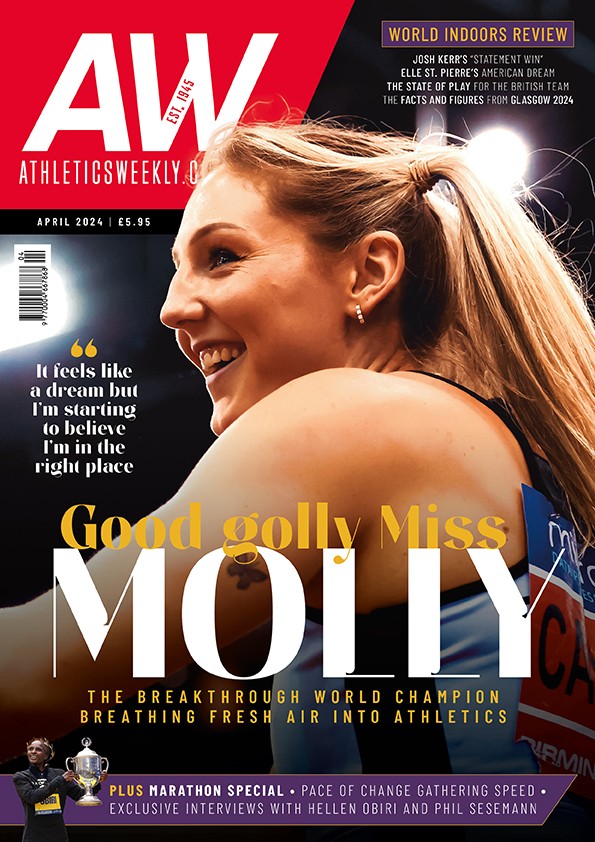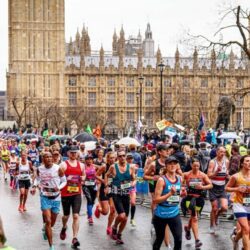Elana Meyer is one of the all-time greats and the South African is still keenly involved in the sport, discovers Jason Henderson
With a world half-marathon title, several world bests for 13.1 miles and multiple big-city marathon top-three finishes, Elana Meyer is one of the greatest female distance runners in history.
The South African also won the IAAF World Cup 10,000m and took Commonwealth Games 10,000m silver behind Yvonne Murray in 1994.
Yet despite all this, she is best remembered for her Olympic silver medal-winning run over 10,000m behind Derartu Tulu at the Barcelona Games in 1992.
It was an historic event with Tulu becoming the first black African woman to win an Olympic medal and Meyer ending her country’s 30-year exile from the Olympics with a hard-fought medal.
South Africa, of course, had been banned from the Games throughout the 1960s, 1970s and 1980s due to its apartheid system of racial segregation. But it was welcomed back to the Olympics in time for the 1992 Games and Meyer became a symbol for the nation as she pushed Tulu to the limit and then embraced her rival from Ethiopia as the duo enjoyed a lap of honour.
While the silver medal moment in Barcelona was a career highlight, Meyer’s career was packed with great performances. During her early years she was one of South Africa’s top teenage runners – winning a half-marathon outright in 87:10 aged 13 in 1980 – and she raced fellow countrywoman Zola Budd in domestic meetings before Budd was hustled and bustled over to England in 1984 on a passport of convenience to race for Britain in the 1984 Olympics.
At that stage, Budd was closer to reaching her career peak than Meyer and it demonstrates how athletes reach that peak at different ages when you consider Budd reached hers in 1985 whereas it would be a further seven or eight years before Meyer would hit her best form despite her being only a few months younger than Budd.
These performances included a world half-marathon best of 67:59 – beating a mark held by Norwegian great Ingrid Kristiansen – and a world 15km record of 46:57 in 1991. Meyer’s range of ability was shown with her winning African titles at 1500m, while she set further world half- marathon records of 67:36 in 1997, 67:29 in 1998 and 66:44 in 1999 – the latter coming in Tokyo.
Renowned for her fierce, front-running racing style, Meyer also won the World Half-marathon Championships in Oslo in 1994, finishing well over half a minute clear.
“A day that starts with a run is a better day. I retired 10 years ago and have run the odd marathon as a charity participant running with people trying to finish their first marathon, but nothing more than that, really”
Obviously she had massive potential in the marathon, but her experiences were slightly frustrating as a series of second and third-place finishes in Boston and Chicago were her highlights as she was denied a big-city marathon win. Her best for 26.2 miles, meanwhile, remained 2:25:15.
As for today, Meyer is a mum of two and helps organise the Cape Town Marathon and works to try to find future South African distance runners. She does not run competitively any more, but several times a week for fun and is very familiar with AW, saying: “I remember it from many moons ago. I’ve not seen it in a while but when I was racing I was a keen follower and subscribed from South Africa.”
Meyer adds: “I am still a passionate runner and I try to run most days. But today it’s for very different reasons – it’s for good health, energy and to stay sane.
“A day that starts with a run is a better day. I retired 10 years ago and have run the odd marathon as a charity participant running with people trying to finish their first marathon, but nothing more than that, really.”
Meyer has two young children – a daughter, Ene, and son, Christopher, and explains: “I got re-married and am merrily busy with two things – firstly, my endurance academy (Endurocad), which tries to foster and develop endurance athletes. It’s one of the areas that South Africa used to be very strong in and it’s diminished a lot over the last two decades so we launched the academy in 2013 and within the first two and a half years we’ve seen great improvement from where we were.”
South Africa has a huge tradition of ultra-distance running with the Comrades Marathon being the jewel in the crown. But Meyer feels this has caused many potentially talented marathon and 5000m/10,000m runners to drift toward the ultra distances too early.
“We are an ultra-mad country where people normally think a marathon is for sissies and you have to run 90 kilometres to be considered a proper runner,” Meyer smiles. “So with that understanding we lose a lot of our great young talent to the very popular ultra events like the Comrades Marathon, which is 90 years old and, to youngsters, they think they have to run the Comrades. They move to ultra at a young age which from an athletics development perspective is not the right thing to do.”
She continues: “We’re trying to restore an area where we used to be very strong in,” says Meyer, on the quest to produce good South African 5-10km runners and marathoners. “It’s a non-profit company and getting athletes ready for the Olympics and beyond. This year we will probably have a couple of athletes in the national team but I expect by the 2020 Olympics I’d hope to see a handful of athletes coming through the system.”
She adds” “I founded it and helped get sponsors and partners on board and there is an emphasis on parallel career development and not just athletics career development.”
“We are an ultra-mad country where people normally think a marathon is for sissies and you have to run 90 kilometres to be considered a proper runner”
The second big project in Meyer’s life is the Cape Town Marathon. “It’s an iconic city but didn’t have an iconic marathon so the idea is to create an event to inspire youngsters and focus on the history and global-ness of the marathon rather than having to jump to the marathons as a young, talented athlete,” she explains.
The race is on September 18 this year – which is spring in South Africa and usually features decent weather for a marathon. “Most of the best marathon runners come from Africa but Africa doesn’t have a big marathon so we’re positioning it to be Africa’s major,” she continues. “So hopefully it will one day join the other major marathons around the world.”
As Meyer’s own athletics career was winding down, the half-marathon and marathon world records were taken to a new level by Paula Radcliffe and Meyer says: “When I was almost exiting the sport, Paula came on to the highest level and I saw her last year in Monaco when I was there and she is still in pretty good shape.
“She redefined women’s marathon running. It’s just a pity an athlete of her calibre doesn’t have an Olympic gold to show for her career. But she moved the level up and showed women should approach the marathon in a much more professional way. She took every component of preparation to a new level and it showed in the results.”
But Radcliffe’s and Meyer’s careers show you don’t need to be an Olympic gold medallist to go down in history as one of the sport’s legends. Meyer’s Olympic silver in 1992 is remembered with great fondness and symbolised new hope for South Africa and indeed across the whole of Africa.
“When Nelson Mandela was released it gave me hope that things would change and would give me the opportunity to race,” she remembers. “So basically eight years after I first qualified for the Olympics I had the chance to represent South Africa and was very relieved and happy to bring back a medal for the country.
“When I walked on to the Olympic track in 1992 it’s hard to describe just how much emotion was captured in that moment. It was a mixed bag of emotions. It was a special moment for me and something I will remember for the rest of my life.”
Does Meyer have any regrets looking back on her career, or things she might have done differently?
“I am pretty satisfied,” she says. “I thought I had a great marathon in me but it never materialised, even though I ran 2:25. I thought it might be my best event. But I have no great regrets.
“I always ran hard and athletes knew when I was in the race it would be a hard race. I ran fast from 1500m all the way up to the marathon. I broke world records, got an Olympic medal and won a world title.
“So coming from a really small town with no athletics history, coming from a country that was banned for 30 years from international competition, athletics gave me a life beyond what I could ever have expected.
“I loved the opportunities that I had and it was 10-15 of the most amazing years of my life. And I love it where I am now trying to help produce the next generation of South African distance runners.”














